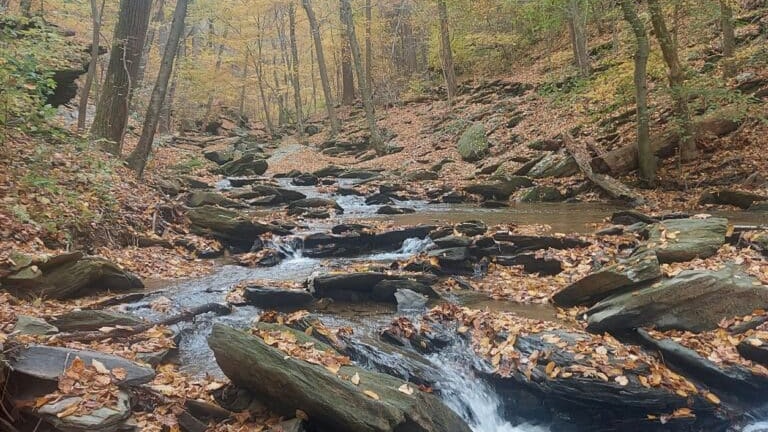Protect the Water You Love
Stroud Water Research Center produces the trusted science needed for successful stream and river conservation while fostering people’s passion for the water in their lives. We do this by advancing knowledge and stewardship of fresh water through global research, education, and watershed restoration.
To join us in protecting fresh water and to make a difference in your community, check out ways you can get involved.
Become a Community Scientist
Community scientists play a vital role in caring for streams and rivers. They volunteer to monitor stream health, and they share scientific data that helps local leaders make informed decisions to protect their community’s fresh water.
A training program like the Penn State Master Watershed Stewards can help you get started.
Already completed a training program? If you’re ready to start volunteering, contact us at communitysci@stroudcenter.org for help finding a watershed organization near you.
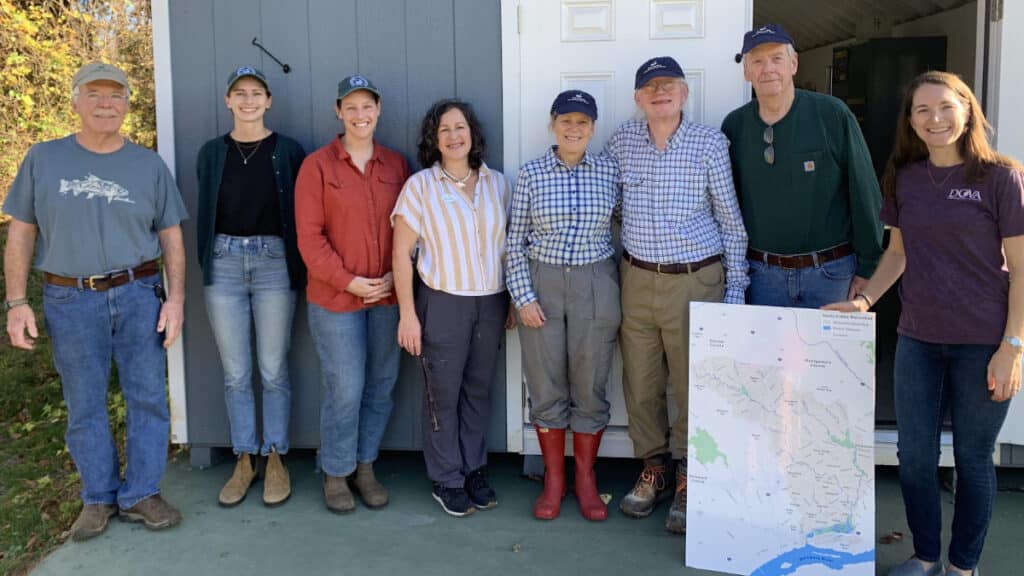
Be a Watershed Hero
No matter where you live, you live in a watershed. The choices you make at home — in your personal piece of the watershed — reach beyond your property line. Here are some actions you can take to make a difference to your local streams and rivers!
Reduce Runoff
Rainwater washing across roofs, lawns, and driveways carries pollutants that end up in nearby waterways.
- Control soil erosion whenever you disturb the ground.
- Direct downspouts toward vegetated areas, not paved areas.
- Plant rain gardens to help rainwater soak into the ground.
- Use rain barrels to collect and store water for gardening.
Reimagine Your Lawn and Garden
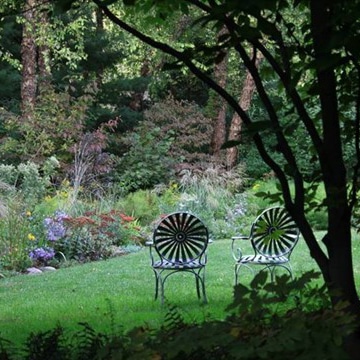
Take steps toward building a livable landscape for you and the environment.
- Pick up pet waste and dispose of it properly.
- Mow high to shade out weeds and reduce the need for watering.
- Replace lawn in low-traffic areas with groundcovers, shrubs, and trees.
- Use organic alternatives to herbicides and pesticides.
- Mulch gardens to control weeds and reduce the need for watering.
- Get a soil test before you fertilize, and don’t fertilize before a rainstorm.
- Compost kitchen and yard waste for an easy and free soil supplement.
Practice Watershed-Friendly Vehicle and Home Care
- Reduce your use of road salt/ice melt, a serious threat to fresh water.
- Maintain your vehicles to prevent oil or other chemical leaks.
- Visit a carwash with a water recycling system instead of washing at home.
- Pump your septic system at least once every three years.
- Limit your use of toxic products and dispose of them properly.
- Fix water leaks, wash full loads, and install water-saving devices.
Plant Native Species
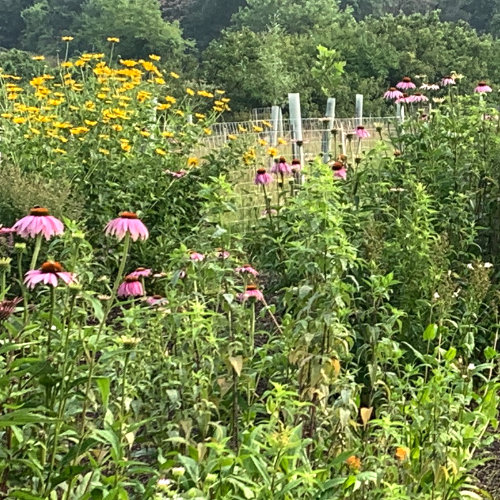
If you have a stream on your property, planting a streamside forest of native trees and shrubs will help protect and restore its water quality. Streamside forests:
- Reduce the amount of pollution that reaches streams and help streams better process the pollution that does enter.
- Reduce flooding during storms.
- Lower the cost of drinking-water treatment.
- Stabilize banks and reduce erosion.
- Provide healthier wildlife habitat.
- Increase privacy and absorb noise.
Planting native species is important even if a stream doesn’t flow through your yard. Native plants are adapted to your local climate, provide food and habitat for animals, are easy to grow, and are low maintenance. Get inspired by this streamside forest and pollinator garden.
Report Spills, Leaks, and Dumping
If you see potentially harmful environmental activity in your watershed, report it to the Environmental Protection Agency, or local authorities.
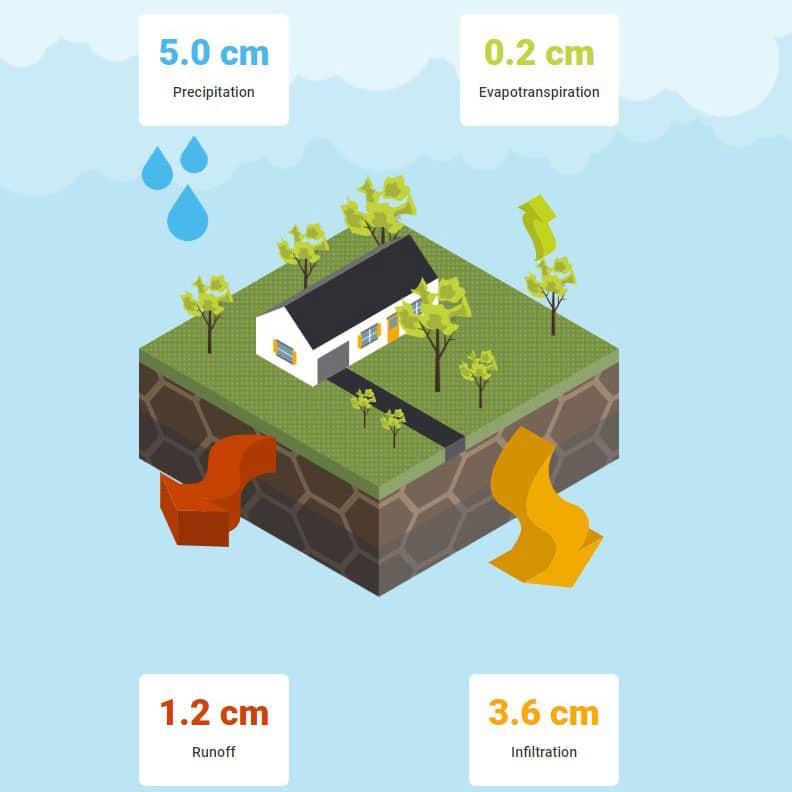
Use These Cool Tools
Check out WikiWatershed.org, Stroud Water Research Center’s web toolkit for advancing knowledge and stewardship of fresh water. From a simple runoff simulation to a professional-grade watershed modeling tool, you’ll find new ways to investigate your watershed!
You can also explore interactive watershed illustrations from headwater streams to rivers.
Get a Free Subscription to UpStream
Get the latest news in freshwater research, education, and restoration delivered monthly to your inbox. Subscribe and you’ll get access to articles like these:
- Too Hot to Handle: How Rising Temperature Impacts Streams
- The Magic of Mayflies
- Cutting Waste in the Reforestation of Riparian Zones
- The Stream Restoration Puzzle
Attend an Event or Education Program
Discover more about the streams and rivers around you by attending an event or education program.
Print These Tips
You can display tips for how to be a watershed hero with our free digital download.
Give to the Future of Fresh Water
Your gift to the Stroud Center helps protect our world’s freshwater sources — the streams, rivers, lakes, and watersheds upon which life depends. Give now.
